From franchises that will tear it all down to those that just need a few tweaks, here are the offseason priorities for all 32 teams.

www.espn.com
Teams set to much look different in 2021
Salute to the Cleveland Browns for breaking a 17-year streak atop the overhaul tiers list.
If the Browns can win 11 regular-season games and follow it up with a road playoff win, there's hope for the six franchises hiring a new head coach and the teams without a clear-cut answer at quarterback and the teams with a flat-out bad defense.
Now that the season is over for most, this is the time of year for buzzwords such as culture, cohesion, chemistry and synergy. The teams that don't have to use these terms are still playing. The teams that do simply need better coaches or players.
But nonetheless, the overhaul tiers are ready -- well-stocked with offseason priorities for each to get better over the next six months.
Slowly rebuild what has been torn down
Jacksonville Jaguars
2020 record: 1-15
Average age of starters in 2020: 26
Projected 2021 cap space: $76,227,279
Big-ticket free agent: Cam Robinson
Low-key important free agent: Sidney Jones
Priorities this offseason: Go all-in now. Use the more than $75 million in cap space and those 10 draft picks (including two first-rounders) to approach fringe contention sooner than later. After 44 regular-season wins over the past decade, try anything.
"They have a chance to get good in a hurry," one NFL personnel man said. "Might not be 2021, but in the next two years, for sure."
This team has bigger problems than quarterback, which will be solved by selecting Trevor Lawrence No. 1 overall. It needs upgrades all over. The offensive line is a strength, so re-signing Robinson to shore up the left tackle spot makes sense. Linebacker and running back are solid. But most spots simply aren't good enough. Replenish everything, and let new coach Urban Meyer foster the talent.
New York Jets
2020 record: 2-14
Average age of roster in 2020: 26.1
Projected 2021 cap space: $69,385,570
Big-ticket free agent: Marcus Maye
Low-key important free agent: Breshad Perriman
Priorities this offseason: Make sure that new coach Robert Saleh develops a strong relationship with general manager Joe Douglas. Those two must coexist harmoniously. Draft the quarterback of the future at No. 2 overall, then decide if trading Sam Darnold for a midround pick is worth it. Otherwise, keep Darnold one more year to see what he has. Upgrade the playmaker and defensive back spots through the draft.
"Really, they had enough talent to be a five- to six-win team this [past year] if they stayed healthy," an AFC scout said. "That's probably where they should have been. It's a rebuild, but there's talent there."
New coach taking control
Atlanta Falcons
2020 record: 4-12
Average age of roster in 2020: 27.2
Projected 2021 cap space: -$37,388,614
Big-ticket free agent: Todd Gurley II
Low-key important free agent: Damontae Kazee
Priorities this offseason: The roster isn't good enough to justify that looming cap deficit. Restructure contracts of star players recently extended, such as Grady Jarrett ($20.83 million cap hit), Jake Matthews ($20.2 million) and Deion Jones ($12.6 million). Try to get out of that three-year, $45 million Dante Fowler Jr. deal that looks bad 10 months later.
And at least explore the trade market for Matt Ryan and Julio Jones, who combine for a massive $64 million cap hit. Try to set up new coach Arthur Smith for the cleanest of slates.
Houston Texans
2020 record: 4-12
Average age of roster in 2020: 26.9
Projected 2021 cap space: -$18,139,131
Big-ticket free agent: Will Fuller V
Low-key important free agent: Tyrell Adams
Priorities this offseason: The Deshaun Watson situation is one that must be addressed before anything else this offseason. Otherwise, sit tight; don't overload your roster with more bold moves. Bill O'Brien did enough aimless maneuvering to leave the Texans with no first- or second-round picks. Maybe move up in the draft for better Day 2 positioning, but keep it sensible.
Consider franchise tagging Fuller (tags will be lower this year due to a declining salary cap). Most of the Texans' free agents can walk.
Take J.J. Watt's advice and prioritize players who want to work hard. Watt is still productive at 31, but with a $17.5 million cap hit next year, the Texans might be best suited trying to trade Watt to a contender or releasing him outright.
Detroit Lions
2020 record: 5-11
Average age of roster in 2020: 27.2
Projected 2021 cap space: $8,594,861
Big-ticket free agent: Kenny Golladay
Low-key important free agent: Romeo Okwara
Priorities this offseason: It's time to gauge trade interest in Matthew Stafford; it has been 12 years, and it hasn't worked. Stafford's pedigree should earn Detroit a first-round pick, which coupled with its existing top-10 pick provides more ammunition to get a top signal-caller in the draft.
Infusing the defense with more speed is crucial. Detroit was one of the league's slowest defenses, which compromised the pass rush and strained the secondary.
Time to reassess
Cincinnati Bengals
2020 record: 4-11-1
Average age of roster in 2020: 26.7
Projected 2021 cap space: $31,921,577
Big-ticket free agent: A.J. Green
Low-key important free agent: William Jackson
Priorities this offseason: Fix the offensive line by any means possible. Playing with a mix of projects and journeymen won't suffice. Invest big in the position through free agency or the draft. Create synergy, from the coaches to players.
There were whispers about player discontent beyond the normal losing, especially on defense. (Carlos Dunlap teased this by forcing a trade.) Making changes to the defensive staff is a good start. Zac Taylor's two wins in December created momentum for Year 3, and Joe Burrow believes he can win big in Cincinnati.
Philadelphia Eagles
2020 record: 4-11-1
Average age of roster in 2020: 26.4
Projected 2021 cap space: -$70,568,434
Big-ticket free agent: Jalen Mills
Low-key important free agent: Duke Riley
Priorities this offseason: Where do you start? This is deeper than Carson Wentz's struggles. The roster just isn't very good. And to think the Eagles could have a top QB staring them in the face in April's draft.
Decide now: Fix Wentz or draft someone, knowing Jalen Hurts can develop through either scenario. The belief leaguewide is the Eagles will explore trade options but are prepared to keep Wentz. The decision to fire Doug Pederson would certainly lend credence to the idea that Wentz is the priority.
Move on from Zach Ertz, who would welcome a change at this point. He has one year left on his deal, and the past efforts at a negotiation didn't go well. Use draft capital to improve the secondary and wide receiver spots. And restructure a boatload of contracts to get under the cap.
Stuck in QB purgatory
Chicago Bears
2020 record: 8-8
Average age of starters in 2020: 27.3
Projected 2021 cap space: -$10,188,695
Big-ticket free agent: Allen Robinson
Low-key important free agent: Mitchell Trubisky
Priorities this offseason: Make the determination -- and make it soon -- whether a Mitch Trubisky-led offense can be more than this. The Bears found a late-season stride as a play-action, movement-zone offense with Trubisky managing the game. But the Bears' offense looked lifeless in their playoff loss to the Saints, resigned to run-heavy three-and-outs and an overall lack of trust in Trubisky to air it out. Replicating that recipe will produce a third straight 8-8 season. Either decide Trubisky can make a Year 5 jump or keep building behind an improving offensive line, tailback David Montgomery and a rookie QB. Either way, make it a personal goal to produce the first 4,000-yard passer in Bears history. And make modest attempts to re-sign Robinson.
Washington Football Team
2020 record: 7-9
Average age of starters in 2020: 26.4
Projected 2021 cap space: $35,132,755
Big-ticket free agent: Brandon Scherff
Low-key important free agent: Ronald Darby
Priorities this offseason: For the first time in a while, Washington is in a pretty good place. Ron Rivera is the right coach for the job, the defense is loaded up front and intriguing young playmakers lead the offense. That's why I expect Washington to get aggressive in its quarterback hunt. Sam Darnold could be a low-cost fix, and Washington could exchange some midround draft capital for a talented but erratic player who clearly needs a change. Or Washington can think bigger and target Matthew Stafford or even Deshaun Watson. Then it's time to focus on the lines. Try to re-sign Scherff if the money is reasonable. Re-signing defensive tackle Jonathan Allen, a 2022 free agent, would send the message that the stout defensive line is a top priority.
Carolina Panthers
2020 record: 5-11
Average age of roster in 2020: 26.5
Projected 2021 cap space: $14,410,408
Big-ticket free agent: Taylor Moton
Low-key important free agent: Russell Okung
Priorities this offseason: Supplement Teddy Bridgewater with a draft pick who can sit and learn for a year. Carolina has eyed this draft class of quarterbacks for quite some time.
Re-signing Moton before he hits free agency should be a priority. He is a cornerstone tackle. Wideout Robby Anderson, a 2022 free agent, will probably want a new deal after his 1,000-yard season. Carolina could use one more piece in the secondary, which it can find in free agency. Just look at how well former Panthers cornerback James Bradberry worked out with the Giants.
Denver Broncos
2020 record: 5-11
Average age of roster in 2020: 26.2
Projected 2021 cap space: $16,660,095
Big-ticket free agent: Justin Simmons
Low-key important free agent: Kareem Jackson
Priorities this offseason: The offseason starts and stops with Drew Lock. No quarterback is more unpredictable on Sundays than Lock, who has plenty of arm but lacks elite decision-making. The Broncos have been noncommittal on Lock due to his 15 interceptions in 13 games in Year 2. The Broncos would be smart to sign an established veteran to push Lock, similar to what the Chicago Bears did with Nick Foles and Mitchell Trubisky.
It wouldn't shock to see Denver decline Von Miller's $17.5 million option for next year. The Broncos can save around $18 million in cap space by moving on, and Miller would have a nice market at age 31. Simmons should be a priority this offseason. He is a star safety who won't have any interest in playing on a second franchise tag.
Dallas Cowboys
2020 record: 6-10
Average age of roster in 2020: 26.5
Projected 2021 cap space: $19,240,465
Big-ticket free agent: Dak Prescott
Low-key important free agent: Aldon Smith
Priorities this offseason: End the charade and pay Prescott. The Dallas offense was about 10 points and 80 yards better per game with Prescott in the lineup this year. Normally, I'd say move on and draft a replacement, because the money has reached obscene levels. But there's no guarantee the Cowboys can get one of the top guys, and Dallas can structure the deal to lessen the cap hit in 2021 while hoping Prescott's recovery from ankle surgery helps negotiations.
Then use draft capital to improve the defensive line and the secondary. Mike McCarthy can take a hard look at whether Mike Nolan is the right defensive coordinator for him.
Surprisingly comfortable despite losing record
San Francisco 49ers
2020 record: 6-10
Average age of roster in 2020: 27.1
Projected 2021 cap space: $12,341,563
Big-ticket free agent: Trent Williams
Low-key important free agents: Kyle Juszczyk, Jason Verrett
Priorities this offseason: Consider 2020 an aberration and get back to work. The 49ers know they are good and won't overreact to an unseemly stretch of injuries.
Gauge trade interest for oft-injured Jimmy Garoppolo, but ultimately consider reasons to keep him too. The 49ers are 24-10 with Garoppolo and 7-25 without him since 2017. Keeping him doesn't preclude San Francisco from drafting a quarterback in the first round and applying pressure on the veteran.
It would be helpful to find out what's causing all these injuries to virtually every position and use that information to prevent them in 2021. Keep either Verrett or Richard Sherman at corner, but not both; can't afford both, because re-signing linebacker Fred Warner (a 2022 free agent) and left tackle Williams is paramount.
Los Angeles Chargers
2020 record: 7-9
Average age of roster in 2020: 26.3
Projected 2021 cap space: $21,309,315
Big-ticket free agent: Hunter Henry
Low-key important free agent: Melvin Ingram
Priorities this offseason: Maximize Justin Herbert. Give him whatever he needs as far as offensive system with the new head coach. The signal-caller already has elite playmakers around him. The offensive line needs at least one more piece, and a new offensive coach with a creative system would utilize Herbert's ability to throw from the pocket or on the move.
Whoever the coach is next year must clean up the curious late-game management under Anthony Lynn.
The defense isn't as talented as it was two years ago. It is aging and needs reinforcements up front and in the secondary. This is a team with anchors on both sides of the ball that should contend for an AFC West title.
One side of the ball needs major help
Baltimore Ravens
2020 record: 11-5
Average age of starters in 2020: 26.9
Projected 2021 cap space: $17,420,423
Big-ticket free agent: Matt Judon
Low-key important free agent: Willie Snead IV
Priorities this offseason: Get Lamar Jackson a No. 1 receiver. Plenty of options could hit free agency, led by Chris Godwin, Kenny Golladay and Allen Robinson II. Robinson is the most likely to avoid the franchise tag, so get in the bidding early. Decide whether OC Greg Roman can modernize the passing game for Jackson. At the least, add a passing game coordinator to infuse more nuance and savvy in the downfield attack. Start to plan for the inevitable Jackson extension.
On the other side of the ball, figure out what's feasible with Yannick Ngakoue and Judon, two pass-rushers coming off franchise tags. Keeping both will be pricey, so pick which one you like best.
Tennessee Titans
2020 record: 11-5
Average age of starters in 2020: 26.9
Projected 2021 cap space: $1,032,198
Big-ticket free agent: Corey Davis
Low-key important free agent: Jonnu Smith
Priorities this offseason: Reset the pass rush. The Titans spent $22.2 million on zero combined sacks from Jadeveon Clowney and Vic Beasley Jr., and it set the entire defense back. Let Clowney walk, then identify a game-wrecking rusher in the draft to improve that 30th-ranked pass rush.
Davis' near-1,000-yard season likely gets him to free agency for the highest bidder. But create some extra cap space for Smith, who won't command top-of-market tight end money but whose versatility is crucial to the Titans' multidimensional attack. He posted a career-high 41 catches for eight touchdowns in 2020.
Minnesota Vikings
2020 record: 7-9
Average age of roster in 2020: 26.3
Projected 2021 cap space: -$10,189,325
Big-ticket free agent: Anthony Harris
Low-key important free agent: Eric Wilson
Priorities this offseason: Since taking over Minnesota in 2014, Mike Zimmer has always counterbalanced lackluster seasons with double-digit wins. There's reason to believe Minnesota can follow that formula again. The Vikings ranked in the top 10 in total offense for the first time since 2009. Keep the core together on that side, starting with an extension for tackle Brian O'Neill.
It's the defense that unexpectedly fell apart, ranking in the bottom third in several statistical categories.
The Vikings are in a tough spot with DE Danielle Hunter, who is underpaid at $14 million per year. The Vikings planned to pay him at some point, but his season-ending neck surgery complicates matters. Make sure he is healthy and comfortable with his contract, then let Harris walk and attempt to re-sign Wilson. Doing any of this will be tough for a team well over the cap for 2021. Cutting veterans such as tackle Riley Reiff and tight end Kyle Rudolph appears in order.
New England Patriots
2020 record: 7-9
Average age of roster in 2020: 26.9
Projected 2021 cap space: $51,092,197
Big-ticket free agent: Joe Thuney
Low-key important free agent: James White
Priorities this offseason: Watching the 2020 Patriots was painful for those who like a semblance of offense on Sundays. Bill Belichick can attack the offseason by adding playmakers at several spots. Free agency is well-stocked with wide receivers. From high-end options (Allen Robinson) to that next tier (Corey Davis, T.Y. Hilton), the Patriots should gauge prices on all of them.
And there will be plenty of capable veteran quarterbacks out there. The Patriots would be wise to explore deals for Carson Wentz, Stafford or Garoppolo. For a cheaper option, former Patriot Jacoby Brissett will be a free agent. All of these options are probably better than a Cam Newton-led passing game that ranked 30th in the NFL this season.
New York Giants
2020 record: 6-10
Average age of roster in 2020: 26.4
Projected 2021 cap space: $9,593,258
Big-ticket free agent: Leonard Williams
Low-key important free agent: Wayne Gallman
Priorities this offseason: Spark the offense with new concepts and talent. If the Giants are sticking with Daniel Jones for a third season, he needs more receivers who can beat man coverage consistently, one more running back and some new ideas for how to make it all work. Ranking next to last in total offense doesn't bode well for offensive coordinator Jason Garrett.
Attempting to re-sign Evan Engram now is a prudent move. When modest stats don't match the elite talent -- he does not have an 800-yard season since entering the league in 2017 -- that's usually good for the team in negotiations.
Las Vegas Raiders
2020 record: 8-8
Average age of roster in 2020: 27
Projected 2021 cap space: -$13,248,520
Big-ticket free agent: Johnathan Hankins
Low-key important free agent: Nelson Agholor
Priorities this offseason: The lack of resources on the defense is hurting the overall product. The Raiders have allocated 37% of their 2020 and 2021 salary caps to that side of the ball. The offense has more than enough to win, ranking eighth in total offense behind Derek Carr, Darren Waller, a stout offensive line and intriguing young playmakers. Time to give the defense the same treatment, starting with prioritizing help along the defensive line via free agency and the draft.
The Raiders took late-season fliers on former first-round pass-rushers Takkarist McKinley and Vic Beasley, who failed spectacularly in Tennessee. The Raiders will need sizable jumps from defensive backs Damon Arnette and Johnathan Abram. That whole defensive unit needs more discipline.
Re-signing Agholor will be a difficult but smart proposition.
On the right track (mostly)
Los Angeles Rams
2020 record: 10-6
Average age of starters in 2020: 26.1
Projected 2021 cap space: -$26,185,460
Big-ticket free agent: John Johnson III
Low-key important free agent: Leonard Floyd
Priorities this offseason: Run it back with the core and some minor tweaks; a few re-signings, a few contract restructures to get under the cap and perhaps a few complementary pieces at linebacker or offensive line via free agency.
Johnson and Floyd will command high money, so the Rams will probably have to choose to keep one. They also face a tough call with Gerald Everett, a talented change-of-pace tight end who has never carried a full load while playing behind Tyler Higbee. Jared Goff isn't going anywhere with three straight years of $30 million-plus cap hits, but signing a veteran backup to push him wouldn't be a terrible idea.
Pittsburgh Steelers
2020 record: 12-4
Average age of starters in 2020: 26.7
Projected 2021 cap space: -$30,977,114
Big-ticket free agent: JuJu Smith-Schuster
Low-key important free agent: Alejandro Villanueva
Priorities this offseason: Have a big-picture, philosophical discussion about the offense. The short passing game stalled out late in the year, the running game is among the league's worst and Ben Roethlisberger turns 39 in March. He's also due a cap hit of $41.25 million the last year of his deal. The Steelers must determine the viability of Big Ben's no-huddle, five-wide attack. They can add voidable years to Roethlisberger's deal to lessen the cap hit if 2021 indeed shapes up to be his last. Pittsburgh must make cap concessions all over the roster, making re-signing key players Smith-Schuster, Villanueva and James Conner an arduous task. The cleanest path is to let some free agents walk, release a few veterans, pay T.J. Watt and keep drafting well.
Seattle Seahawks
2020 record: 12-4
Average age of starters in 2020: 26.9
Projected 2021 cap space: $7,218,175
Big-ticket free agent: Shaquill Griffin
Low-key important free agent: Chris Carson
Priorities this offseason: Seattle faces major financial decisions and not much cap room with which to make them. After giving up two first-round picks for Jamal Adams, extending him this offseason is the next logical step. That's a negotiation that could take up much of the offseason. But Seattle also will discuss a new deal with Griffin in the coming weeks, which could set the stage to use a franchise or transition tag on Carson (running back tags will be discounted with a lowering salary cap). Given cap ramifications, Seattle might have to prioritize two of those players and let the third one walk. The Seahawks need reinforcements along an offensive line that failed to protect Russell Wilson in the wild-card loss to the Rams. They must get younger and more talented there.
Indianapolis Colts
2020 record: 11-5
Average age of starters in 2020: 26.5
Projected 2021 cap space: $57,639,604
Big-ticket free agent: Philip Rivers
Low-key important free agent: Xavier Rhodes
Priorities this offseason: The Colts have a ready-made roster to contend in 2021 and need clarity at the most important position to put them over the top. That's why multiple people around the league expect Indy to look into potential trades for Matthew Stafford or Carson Wentz, who could reunite with Frank Reich from their Eagles days. GM Chris Ballard has been patient in building a winner, and now is the time to strike. Re-signing linebacker Darius Leonard, a 2022 free agent, before San Francisco resets the market by re-signing Fred Warner would be a prudent move. The Colts likely will let T.Y. Hilton test the market, which leaves the draft to find Indy's next downfield threat.
Arizona Cardinals
2020 record: 8-8
Average age of roster in 2020: 27.5
Projected 2021 cap space: $13,427,272
Big-ticket free agent: Patrick Peterson
Low-key important free agent: Haason Reddick
Priorities this offseason: The Cardinals' postseason meetings should address why a 6-3 season fell apart. Kliff Kingsbury suffered a few growing pains when trying to close out games, and the vertical passing game was uneven despite moments of brilliance from Kyler Murray.
Most of the Cardinals' issues are not talent-based, though. The franchise jumped from holding the No. 1 pick to the cusp of the playoffs in two years, and Kingsbury deserves some credit for that. This is a roster that can win big next year. The offense averaged 385 yards per game, and the defense played at a respectable level, despite the need for an extra pass-rusher and more secondary help.
Success hinges largely on Kingsbury, Murray and GM Steve Keim making a leap in their third year together.
Miami Dolphins
2020 record: 10-6
Average age of roster in 2020: 25.8
Projected 2020 cap space: $24,864,768
Big-ticket free agent: Ryan Fitzpatrick
Low-key important free agent: Elandon Roberts
Priorities this offseason: With the No. 3 overall pick staring Miami in the face thanks to the Laremy Tunsil trade with Houston, the NFL is about to find out how the Dolphins really feel about Tua Tagovailoa. Justin Fields or Zach Wilson could be available to Miami as part of a talented draft class. Doing extensive homework on that class and weighing the pros and cons of riding with Tagovailoa in Year 2 is crucial for Miami's success.
Tagovailoa did some good things, and he might be the long-term answer, but the truth is Miami would trade out of that third spot without hesitation if Justin Herbert were its quarterback. Either way, the one-year Chan Gailey experiment at OC might be over. And the quarterback in 2021 needs more dynamic pass-catchers to stretch the field vertically and maybe one more solid lineman. Otherwise, this roster is well-positioned for contention right now.
On the brink
Cleveland Browns
2020 record: 11-5
Average age of starters in 2020: 26.3
Projected 2021 cap space: $21,806,883
Big-ticket free agent: Karl Joseph
Low-key important free agent: B.J. Goodson
Priorities this offseason: After relying on a series of short-term deals on defense, the Browns need upgrades in a few areas, particularly in the secondary. Prioritize all three levels in free agency and the draft. Be proactive in keeping draft picks that hit (Baker Mayfield, Nick Chubb and Denzel Ward for starters).
Rashard Higgins has likely played his way into a second-tier receiver contract with the Browns, who can spend on a core that should keep the Browns competitive for a while. Make a decision on Odell Beckham Jr.'s future. His $15.75 million cap hit isn't outrageous, so keeping him as a vertical threat will expand the offense.
In need of a financial reset
New Orleans Saints
2020 record: 12-4
Average age of starters in 2020: 27.5
Projected 2021 cap space: -$98,480,924
Big-ticket free agent: Trey Hendrickson
Low-key important free agent: Marcus Williams
Priorities this offseason: The Saints face an avalanche of cap issues, several free agents they probably can't re-sign, star 2022 free agents who need extensions -- and that's before you get to Drew Brees' impending retirement. Getting through this offseason with most of the current roster intact would be a mild upset.
Deciding whether Taysom Hill or Jameis Winston should replace Brees is atop the list. Meanwhile, nearly 10 Saints veterans have cap hits of $10 million or more next year. It's possible several of them won't be back. The Saints should make efforts to re-sign Williams, whose ball-hawking abilities bolstered the secondary.
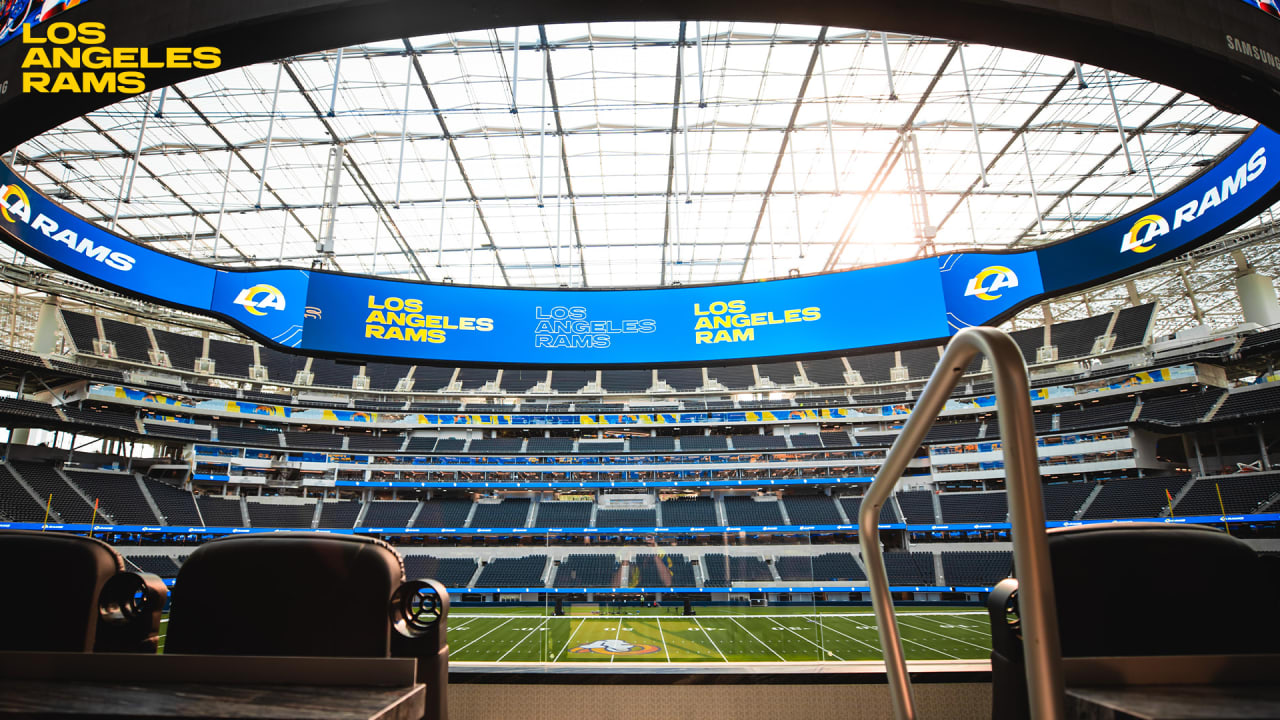
 www.therams.com
www.therams.com
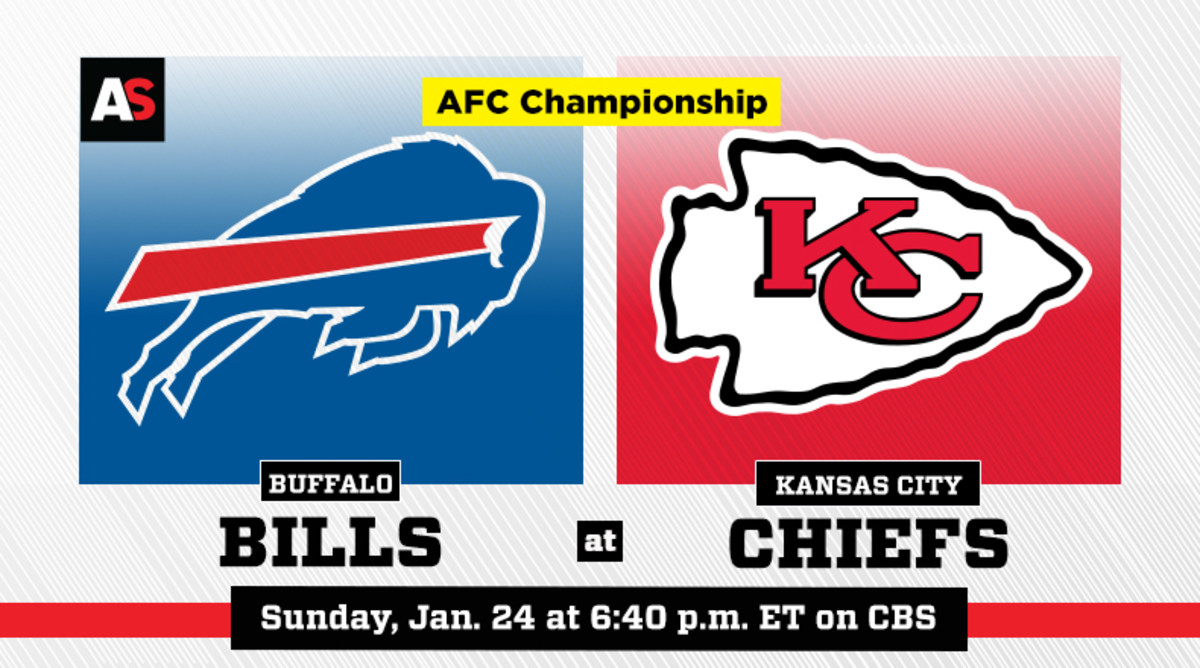
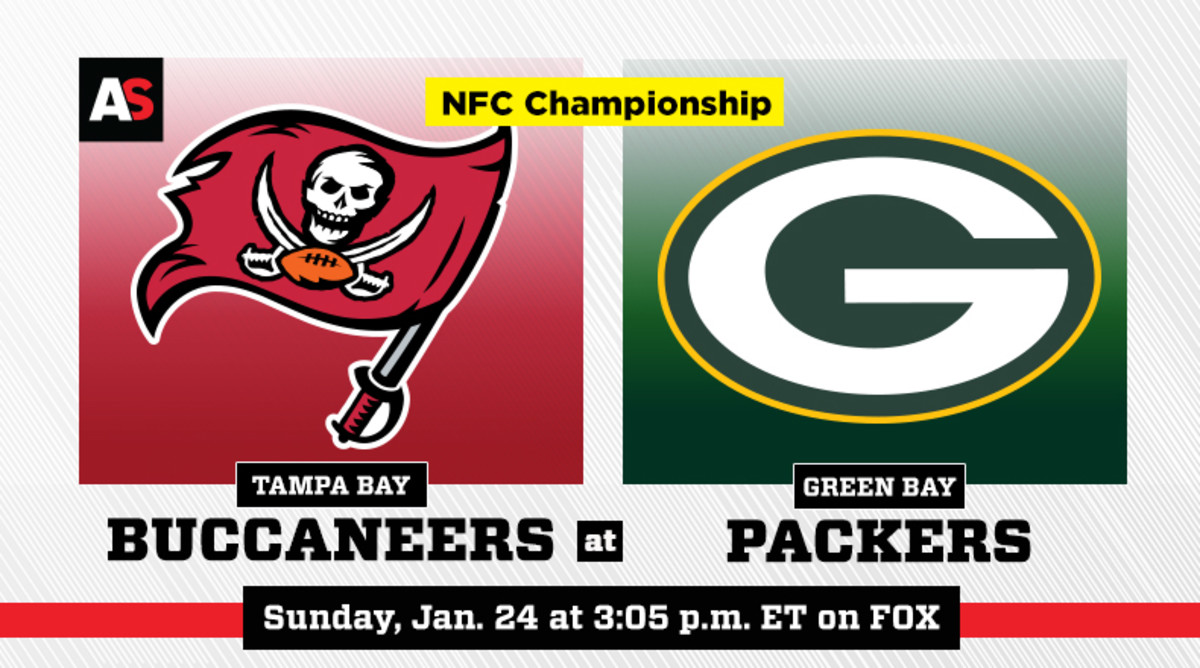

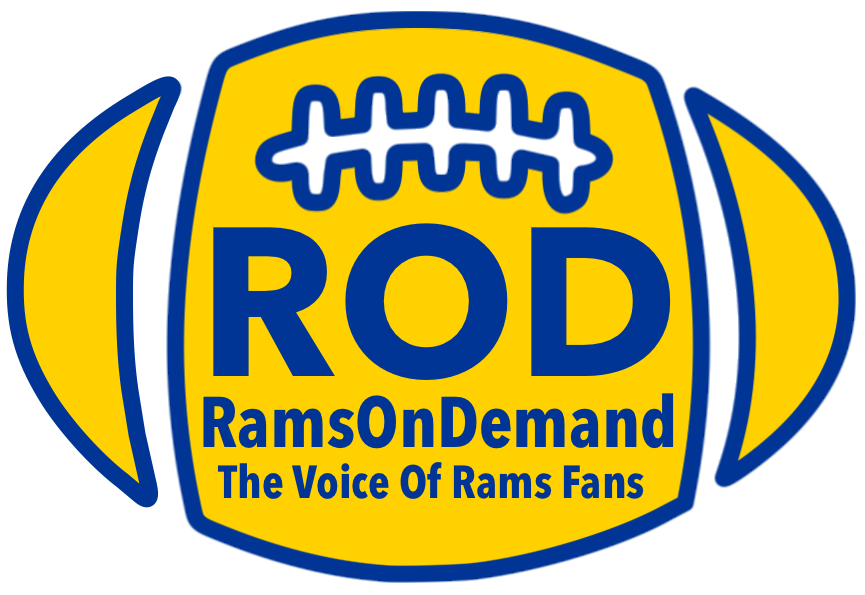
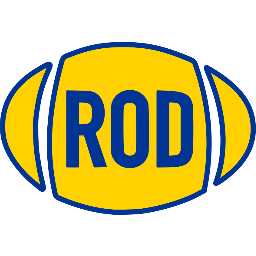 ramsondemand.com
ramsondemand.com

